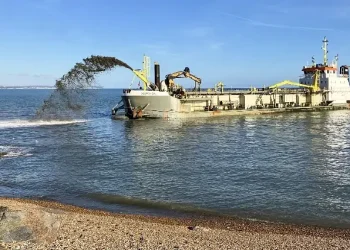The UK Environment Agency has granted an environmental permit for Viridor Tees Valley Ltd’s Energy Recovery Facility in Grangetown, Redcar, following a public consultation.
This decision is pivotal for regional waste management and energy recovery, aligning with national environmental goals.
Details of the Tees Valley Energy Recovery Facility Permit
The Tees Valley Energy Recovery Facility (TVERF) is set to begin operations in late 2029, transforming non-hazardous waste into energy. This initiative follows a detailed public consultation and rigorous assessment of the facility’s impact on environmental and public health.
The permit includes stringent conditions to control emissions and ensure the facility operates within the legal environmental protections. This is part of a broader strategy to reduce reliance on landfills in the UK.
Public and Environmental Health Considerations
The Environment Agency has enforced strict operational conditions on the TVERF to prioritize public and environmental health. These measures are designed to mitigate any potential negative impacts from the facility’s operations.
Local residents have expressed concerns about air quality and emissions. The facility’s permit addresses these issues by setting limits and requiring continuous monitoring to ensure compliance.
Community Engagement and Regulatory Process
The permitting process included a public consultation phase from September to October 2024, which received 27 responses. This phase was crucial for incorporating public opinion and addressing community concerns.
The final decision to grant the permit was made after a thorough review of the facility’s compliance with environmental laws and its potential impact on the community and the environment.
Statements from Industry Leaders and Regulatory Bodies
Environment Agency spokesperson Ian Preston commented on the permit approval, emphasizing the rigorous standards met by the facility.
“I want to reassure people that the permit will ensure that robust levels of environmental protection are met. Environmental law sets out these conditions, and as a regulator, we are obliged to issue the permit if we can find no reason that the operator would not be able to comply.”
While specific critics were not quoted directly, previous consultations highlighted concerns about emissions and their potential impact, which the permit has sought to address comprehensively.
Insightful Data on Tees Valley Energy Recovery Facility
| Category | Detail |
|---|---|
| Start of Operations | Late 2029 |
| Public Consultation Period | September-October 2024 |
| Number of Responses | 27 |
| Permit Conditions | Strict emissions and environmental protections |
Transforming Waste Management: Innovations on the Horizon
The approval of the TVERF permit sets a precedent for future energy recovery and waste management projects in the UK. It reflects a shift towards more sustainable practices in waste processing and energy production.
This facility is part of a larger UK strategy to enhance waste recycling rates and reduce the environmental footprint of waste disposal.
Further Developments and Community Monitoring
As construction progresses and the facility begins operations, ongoing monitoring and community engagement will be crucial to ensure that the facility continues to meet its permit conditions and address any emerging concerns.
The facility promises to provide local energy generation, which could lead to broader economic and environmental benefits for the Teesside area.
Discover more of More of Today’s Top Breaking Government News Stories!
Sources: UK Government News and the Environment Agency.
Prepared by Ivan Alexander Golden, Founder of THX News™, an independent news organization delivering timely insights from global official sources. Combines AI-analyzed research with human-edited accuracy and context.









